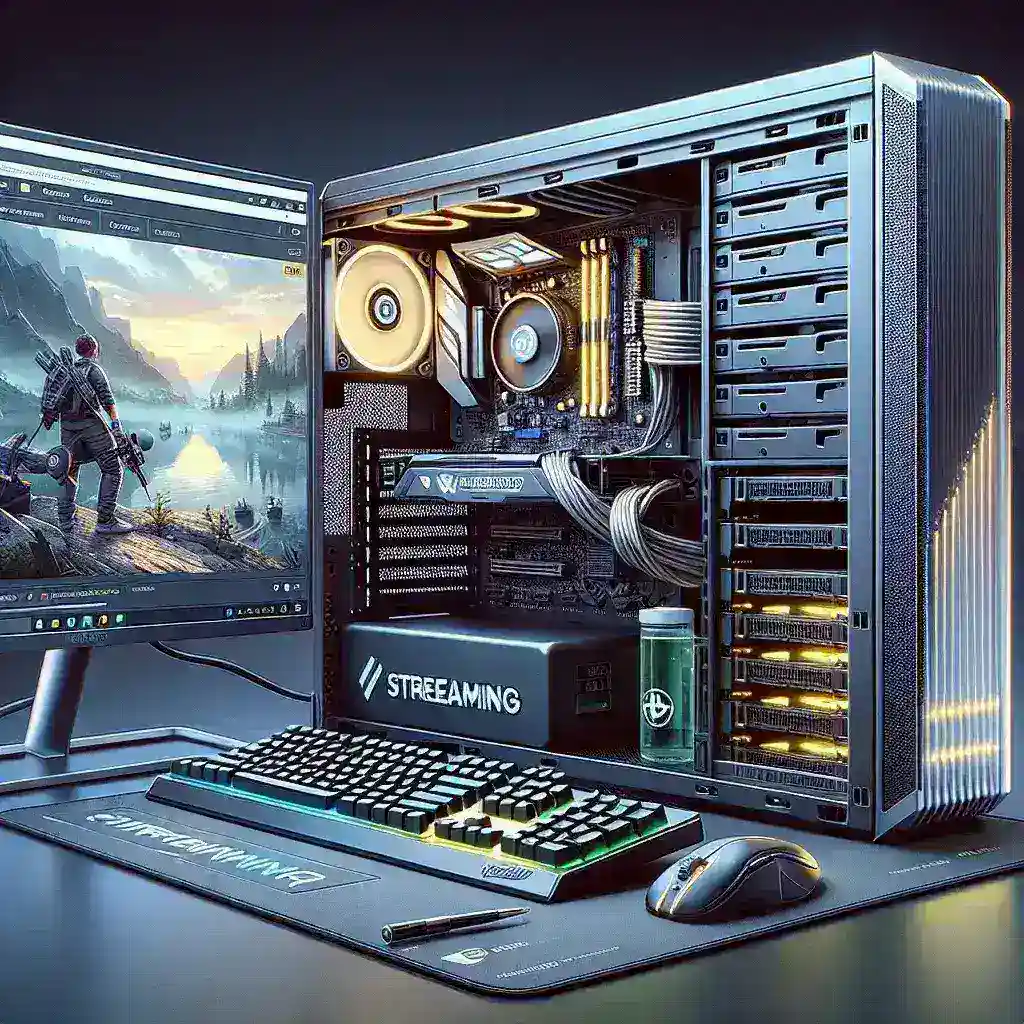In today’s digital era, gaming has transformed from a mere hobby to a lucrative career for many. As live streaming platforms like Twitch and YouTube Gaming continue to grow, gamers are always on the lookout for ways to enhance their streaming quality. One notable advancement in this field is the integration of hardware-level streaming encoders in gaming PCs. But what exactly are the benefits of these encoders? Let’s delve into the advantages and understand why they’re becoming a crucial component for modern gaming systems.
Understanding Hardware-Level Streaming Encoders
Before diving into the benefits, it’s essential to understand what hardware-level streaming encoders are. Essentially, these are dedicated components within the GPU or a separate card that handle the tasks of encoding video streams. This is in contrast to software encoders that rely on the CPU. Hardware encoders are designed to manage these tasks more efficiently, allowing for smoother and higher-quality streams.
Benefits of Hardware-Level Streaming Encoders
1. Improved Performance
One of the most significant benefits of hardware-level streaming encoders is the improved performance they offer. When encoding is handled by dedicated hardware, it offloads the task from the CPU, freeing up resources for other critical processes involved in gaming.
- Reduced CPU Load: By offloading encoding tasks, the CPU can focus more on handling game mechanics and other essential functions, leading to smoother gameplay.
- Consistent Frame Rates: With less pressure on the CPU, gamers are less likely to experience frame drops, ensuring a more stable and enjoyable gaming experience.
| Feature | Hardware Encoder | Software Encoder |
|---|---|---|
| CPU Usage | Low | High |
| Frame Rate Stability | High | Variable |
2. Enhanced Streaming Quality
Another notable benefit is the superior streaming quality provided by hardware encoders. These dedicated components are optimized for video encoding, ensuring that the output is of the highest possible quality.
- Reduced Latency: Hardware encoders typically offer lower latency compared to their software counterparts, leading to a more synchronized stream.
- High Definition Streaming: They are capable of encoding videos at higher resolutions and bitrates, which is essential for professional streamers aiming for the best possible viewer experience.
3. Energy Efficiency
Hardware-level encoders are also more energy-efficient compared to software-based solutions. Since they are specialized for video encoding, they consume less power while performing the task efficiently.
- Reduced Power Consumption: This is particularly beneficial for prolonged gaming sessions, as it helps in keeping the system cool and energy costs down.
4. Future-Proofing Your System
As streaming technology continues to evolve, having a hardware-level encoder can future-proof your gaming setup. With newer encoding standards and formats emerging, dedicated hardware can adapt more easily compared to software-based solutions.
- Support for New Formats: Hardware encoders can be updated or upgraded to support emerging video formats and standards, ensuring that your system remains relevant.
Conclusion
In summary, gaming PCs equipped with hardware-level streaming encoders offer a myriad of benefits ranging from improved performance and enhanced streaming quality to energy efficiency and future-proofing. For serious gamers and professional streamers, investing in a system with a hardware encoder not only enhances the gaming and viewing experience but also ensures that the setup is capable of handling the demands of future developments in streaming technology.

